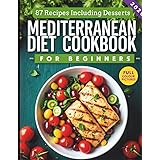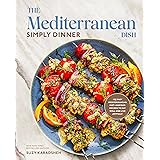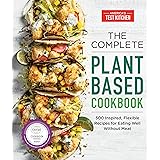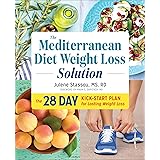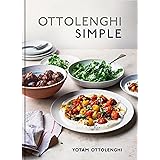Navigating the complexities of optimal nutrition during a demanding workday often presents a formidable challenge for professionals. The continuous juggle of deadlines, meetings, and personal commitments can easily relegate thoughtful meal planning to a secondary concern, leading to suboptimal food choices. However, sustained energy levels, cognitive sharpness, and overall well-being are inextricably linked to a well-structured dietary intake throughout the day. Adopting an evidence-based approach to workday nutrition is not merely beneficial; it is a strategic imperative for peak performance and long-term health. The video above showcases a practical “what I eat in a day” scenario, offering a foundational glimpse into accessible food options. This article expands upon those selections, providing expert insights into the underlying nutritional principles that optimize daily dietary strategies for the busy professional.
The Strategic Foundation of Workday Nutrition
Establishing a robust nutritional framework at the beginning of the day is paramount for maintaining consistent energy and focus. Each meal and snack contributes significantly to metabolic balance and neurocognitive function, thereby influencing productivity. Understanding the interplay of macronutrients and micronutrients at every stage of the workday is critical for proactive health management. Thoughtful meal composition can mitigate energy dips and enhance satiety, preventing impulsive, less nutritious choices. Prioritizing nutrient density and efficient preparation methods ensures adherence to health goals even amidst a hectic schedule. This holistic approach forms the bedrock of effective workday nutrition, moving beyond mere sustenance to strategic physiological support. Therefore, a comprehensive understanding of food choices empowers individuals to maximize their daily potential.
Optimizing Breakfast for Sustained Energy
Initially, commencing the day with a breakfast that balances complex carbohydrates, lean protein, and healthy fats is foundational for glycemic control and sustained satiety. Greek yogurt, particularly the plain, high-protein varieties, offers a significant protein source alongside beneficial probiotics for gut health. This dairy product contributes essential amino acids crucial for muscle maintenance and neurotransmitter synthesis, supporting cognitive function. Integrating fresh berries introduces a rich array of antioxidants and dietary fiber, which modulate glucose absorption and reduce oxidative stress. The natural sugars in fruit provide readily available energy, while fiber prevents a rapid insulin spike, ensuring a more stable blood sugar profile. This synergy between protein, fiber, and slow-release carbohydrates provides a prolonged energy supply, warding off mid-morning fatigue effectively.
Crafting High-Satiety Lunches for Peak Performance
Subsequently, the midday meal serves as a critical opportunity to replenish energy stores and support cognitive endurance through the afternoon slump. Prioritizing protein-rich components is crucial for promoting satiety and reducing the likelihood of untimely hunger pangs. Hard-boiled eggs, for instance, represent a highly bioavailable protein source, offering all nine essential amino acids necessary for bodily functions. Their convenience and portability make them an excellent choice for a packed lunch, requiring minimal preparation time. Furthermore, incorporating cheese cubes provides additional protein and healthy fats, which slow digestion and contribute to a feeling of fullness. This combination helps stabilize blood glucose levels, preventing the post-lunch energy dip commonly associated with carbohydrate-heavy meals. A well-constructed lunch, rich in protein and moderate fats, ensures sustained focus and productivity throughout the latter half of the workday.
Navigating Mid-Day Fueling with Precision
Strategic snacking throughout the workday is not merely about appeasing hunger but also about sustaining metabolic equilibrium and preventing extreme fluctuations in energy. Properly chosen snacks can bridge the gap between main meals, maintaining optimal blood glucose levels and preventing overeating at subsequent meals. This proactive approach to fueling helps stabilize mood and cognitive performance, which can otherwise decline during prolonged periods without nourishment. Careful consideration of snack composition—balancing macronutrients like protein and fiber—is essential for maximizing their beneficial impact. Therefore, intelligent mid-day fueling is an integral component of a comprehensive workday nutrition strategy. It requires foresight and a nuanced understanding of physiological requirements.
Intelligent Snacking for Blood Sugar Stability
Furthermore, selecting intelligent snacks that contribute to blood sugar stability is paramount for sustained cognitive function and energy. Gluten-free pretzel sticks, while providing a quick carbohydrate source, should ideally be paired with protein or healthy fats to mitigate rapid glucose spikes. Simple carbohydrates without balancing nutrients can lead to a transient energy surge followed by a significant crash, negatively impacting concentration. Popcorn, especially air-popped, offers dietary fiber, which slows carbohydrate digestion and contributes to satiety. However, its nutritional value is enhanced when combined with sources of protein or healthy fats, such as a handful of nuts or seeds. Mindful snacking focuses on nutrient density and the synergistic effect of combining food groups to achieve optimal metabolic responses. This approach ensures that snacks genuinely support energy levels rather than creating detrimental cycles.
The Importance of Diversified Snack Options
Crucially, diversifying snack options beyond typical processed choices can significantly enhance overall nutrient intake and dietary adherence. Relying on a varied selection of whole foods ensures a broader spectrum of essential vitamins, minerals, and phytonutrients critical for various bodily functions. This strategic variety also prevents dietary boredom, which can often lead to cravings for less healthful, ultra-processed alternatives. Exploring different textures and flavors through fruits, vegetables, nuts, and seeds keeps the palate engaged and satisfied. Additionally, incorporating novel yet nutritious options encourages greater engagement with personal health goals. A dynamic snacking strategy thus reinforces a commitment to comprehensive wellness, offering both physiological and psychological benefits throughout the workday.
Engineering an Efficient and Nutrient-Rich Dinner
Finally, concluding the workday with a dinner that is both nutritionally robust and easily prepared is essential for recovery and sustained health. The evening meal provides an opportunity to replenish muscle glycogen stores, facilitate tissue repair, and prepare the body for restorative sleep. An optimal dinner balances complex carbohydrates for energy, lean proteins for repair, and healthy fats for nutrient absorption and satiety. The challenge often lies in preparing a healthful meal quickly after a long day, emphasizing the need for efficient culinary strategies. Prioritizing ease of preparation without compromising nutritional quality ensures that dietary goals remain achievable. Therefore, engineering such a dinner is a cornerstone of effective workday nutrition, promoting holistic well-being.
Rapid Preparation, Maximum Nutritional Impact
The selection of quick-cooking, nutrient-dense ingredients can drastically reduce dinner preparation time without sacrificing nutritional quality. Sweet potato gnocchi, for instance, offers a complex carbohydrate source rich in beta-carotene and dietary fiber, providing sustained energy and supporting digestive health. Combining this with boiled peas adds significant fiber and micronutrients, further enhancing the meal’s nutritional profile. Grilled chicken serves as an excellent lean protein source, essential for muscle repair and satiety post-work. Its rapid cooking time makes it ideal for busy evenings, fitting seamlessly into an efficient meal plan. This strategic combination of readily available ingredients ensures a balanced, flavorful meal that supports metabolic recovery efficiently. The emphasis on rapid preparation maximizes adherence to health-conscious eating patterns.
Balancing Macronutrients for Post-Work Recovery
Achieving an optimal macronutrient balance at dinner is critical for post-work recovery and metabolic restoration, particularly after a day of mental and physical exertion. Adequate protein intake supports muscle protein synthesis, aiding in the repair and regeneration of tissues throughout the body. Complex carbohydrates replenish glycogen stores in muscles and the liver, providing the necessary energy substrate for overnight bodily processes. Furthermore, including healthy fats, such as those found in avocados or olive oil, facilitates the absorption of fat-soluble vitamins and contributes to prolonged satiety. This thoughtful macronutrient distribution supports a steady metabolic rate, preventing nocturnal hunger and promoting restful sleep. A well-composed dinner is therefore an integral part of an effective workday nutrition strategy, priming the body for the challenges of the subsequent day.
Strategic Sweet Treat Integration for Dietary Adherence
Integrating controlled, mindful sweet treats into a daily dietary regimen can play a pivotal role in long-term dietary adherence and psychological well-being. Complete deprivation of favored foods often leads to eventual overindulgence, undermining overall nutritional goals. A strategically chosen sweet item, consumed in moderation, can satisfy cravings without derailing progress, promoting a more sustainable approach to healthy eating. The key lies in selecting options that offer some nutritional benefit or at least manage glycemic impact. This nuanced approach acknowledges the psychological aspect of food consumption, recognizing that enjoyment contributes significantly to dietary sustainability. Therefore, thoughtful sweet treat integration is a sophisticated component of comprehensive workday nutrition planning.
Mindful Indulgence and Glycemic Management
Selecting sweet treats that offer some fiber or are consumed alongside a meal can help manage their glycemic impact, promoting healthier blood sugar responses. An apple cereal bar, particularly those with whole grains and real fruit, provides dietary fiber which slows sugar absorption into the bloodstream. Pairing this with additional fresh berries further boosts fiber content and antioxidant intake, enhancing the nutritional profile of the treat. This strategy allows for a mindful indulgence that satisfies a sweet tooth without triggering significant insulin spikes and subsequent energy crashes. Understanding the interplay between different food components enables more informed choices, transforming a simple treat into a part of a balanced diet. Consequently, such thoughtful integration supports both dietary satisfaction and metabolic stability for optimal workday nutrition.
Crunching Your ASMR Food Questions
Why is it important to eat healthy during a busy workday?
Eating healthy during your workday helps maintain consistent energy levels, keeps your mind sharp, and contributes to your overall well-being for better performance.
What kind of breakfast is best to start the day with energy?
A good breakfast balances complex carbohydrates, lean protein, and healthy fats, like Greek yogurt with fresh berries, to provide sustained energy.
How can I choose a lunch that keeps me full and focused all afternoon?
For lunch, focus on protein-rich foods and healthy fats, such as hard-boiled eggs and cheese, to promote satiety and prevent energy dips.
Should I eat snacks during the workday, and what are good options?
Yes, strategic snacks help stabilize blood sugar. Choose options that combine protein and fiber, like popcorn paired with nuts or seeds.
What makes a good dinner for after work?
An optimal dinner should be easy to prepare and balance complex carbohydrates, lean proteins, and healthy fats to aid in recovery and prepare your body for rest.



